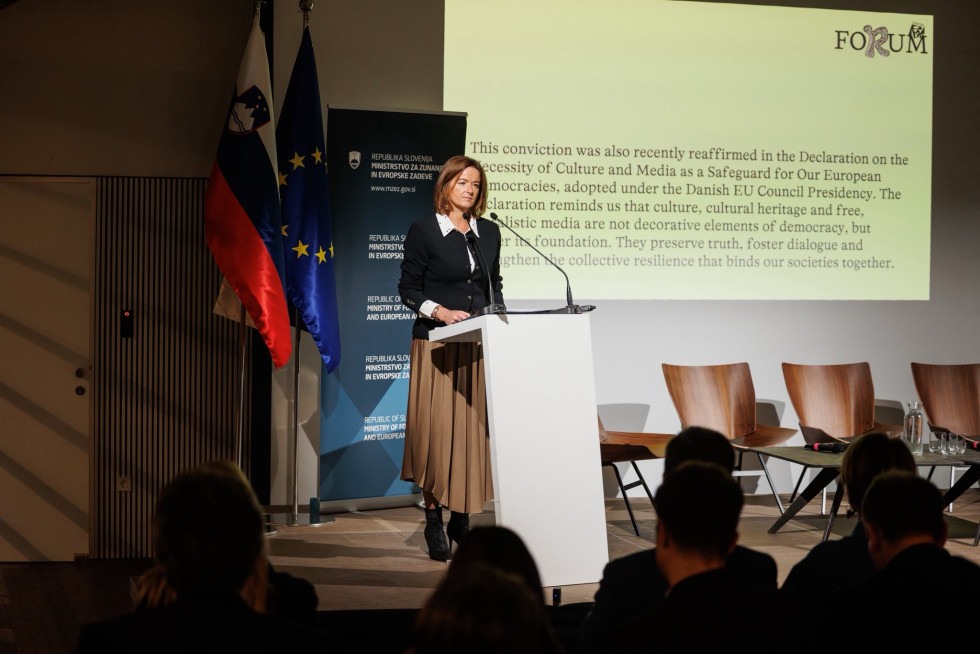Fajon: Culture and art can reach where politics cannot, when diplomacy hits a wall

Minister Tanja Fajon at the Center Rog. | Author STA
This year's conference at the Rog Center is held under the title Borders and Frictions. The Ministry of Foreign and European Affairs of the Republic of Slovenia joined the Rog Center in organising the opening panel entitled Soft Power in Hard Times: How creative collaborations can ease global tensions.
Before the opening panel, Minister Fajon told the participants how she had often spoken about the moral test of our generation and how we, as the international community fail the test of humanity when we allow geopolitical interests to silence compassion. "In hard times, we turn to soft power: the ability to inspire, to heal, to bridge. Soft power is far from an expression of weakness, it is resilience in its most human form. It is the quiet force of ideas, imagination and collaboration that endures when hard power divides."
In her view, culture and the arts are among the most enduring instruments of soft power. They can reach where politics cannot and open hearts when diplomacy hits walls. "The Ministry appreciates the dialogue between diplomacy and creative industries, between policy and creativity, because this is where new forms of understanding begin. Just last month, we celebrated a remarkable example of such soft power: the Peace Child musical at the Wiener Konzerthaus, under Slovenia’s SIT DOWN initiative," explained Fajon, adding that protecting art, heritage and language is protecting democracy.
The opening panel of the three-day event at the Rog Center, moderated by Nataša Kos, Head of the Department for Cultural and Science Diplomacy, featured representatives from the fields of cultural diplomacy and creative industries. They touched on theoretical insights and explored practical mechanisms and limitations in cultural and creative exchanges. The panellists were Christoph Thun Hohenstein from the Austrian platform Future Platform ReGenerativa, Saša Šavel Burkart, head of the Slovenian Cultural Center in Berlin, Quitterie de Bernardi, representative of the French Ministry for Europe and Foreign Affairs, and Külli Hansen from the Estonian Tartu Center for Creative Industries.

